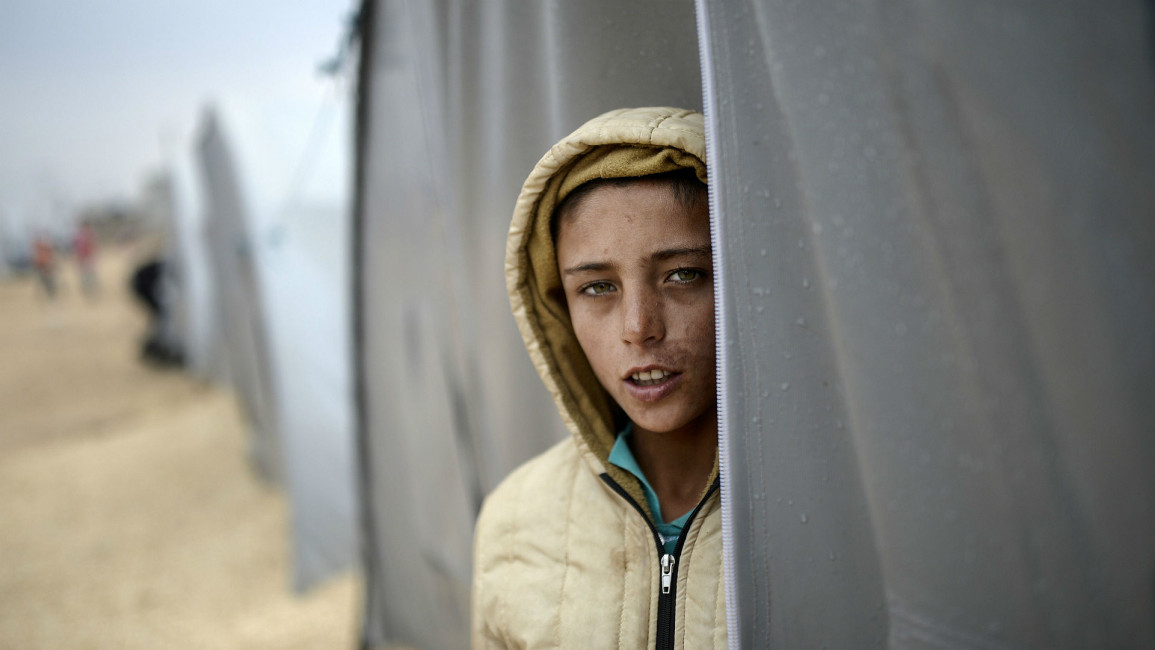Report: Turkey is struggling to cope with Syria's refugees
Turkey is struggling to cope with the hundreds of thousands of refugees fleeing from Syria's protracted conflict, said Amnesty International.
In a new report the London based human rights organisation warns that hundreds of thousands of refugees are living in destitution and others are being denied entry.
"Turkey's response to the Syrian refugee crisis, despite its significant resource commitment and many positive policy initiatives, is increasingly showing its limitations," it said.
Conditions are so desperate some refugees are returning to war torn Syria. Turkey has taken in 1.6 million Syrian refugees since the Syrian conflict began in 2011 but only 220,000 of these are living in refugee camps - which are now operating at full capacity - and the rest are fending for themselves.
Amnesty's report praised the "well-resourced" refugee camps that had been set up in Turkey and the move by the Turkish authorities to allow free healthcare to all Syrian refugees.
It contrasted this with the paltry response by the international community to the crisis, complaining of "grossly insufficient funding commitments" from the West. Since the conflict began, Turkey has had an open door policy for Syrian refugees, who Ankara prefers to call "guests" rather than "refugees" and their camps "tented cities" rather than "camps".
A dangerous front
Amnesty exprssed concern that some refugees are now being denied access to the safety of Turkish territory.
Those who try and cross illegally, avoiding official border crossings, are at risk of abuses including "being fired on with live ammunition, or torture and other ill-treatment."
Amnesty said it had gathered evidence of 17 fatal shootings and 10 incidents in which 31 individuals were allegedly beaten by Turkish border guards.
The Turkish authorities did not respond to requests for comment.
Turkey has been one of the main conduits for fighters and arms into Syria leading to accusations that Ankara has facilitated the rise of self-titled, Islamic State (IS). A claim the Turkish authorities have repeatedly denied.
The extremist militia is increasingly viewed in foreign capitals as a security threat resulting in mounting pressure on Turkey to clamp down on the group and its supply routes in the border region.
Aleppo’s fate
Turkey fears another two to three million Syrian refugees could cross its borders if the region of Syria's second city of Aleppo is overrun either by Islamist extremists or regime forces, Foreign Minister Mevlut Cavusoglu said earlier in the week.
In recent months, Syrian regime forces have advanced around the outskirts of the rebel-held eastern portion of Aleppo, threatening to encircle it completely. Numerous factions within the opposition that had previously been competing for turf are now joining forces with shared operations rooms and coordinated missions on the battlefield.
Leaders of the armed opposition stormed the city in the summer of 2012, their ranks filled with fighters from the surrounding countryside. The hope was that the city would quickly fall paving the way for a rally on the capital Damascus.
That is now a distant dream and the opposition are under serious threat of completely losing control of the city to the government's forces. If Aleppo falls it would be a huge blow to the revolution. Perhaps a fatal one.
Commanders on Aleppo's battlefield complain that the US-led airstrikes have only focused on the more extreme elements of the opposition such as IS and el-Nusra.
They argue this has freed the government's hand to strike harder and deploy more resources against the opposition forces.
Rebel leaders are quick to point out they pushed IS fighters out of Aleppo and Idlib earlier in the year with popular support but that backing is now evaporating.
Elements of the Free Syrian Army that have received training or funding from the US have been accused of being “collaborators” in a campaign perceived as strengthening President Bashar Al Assad's military capabilities.



